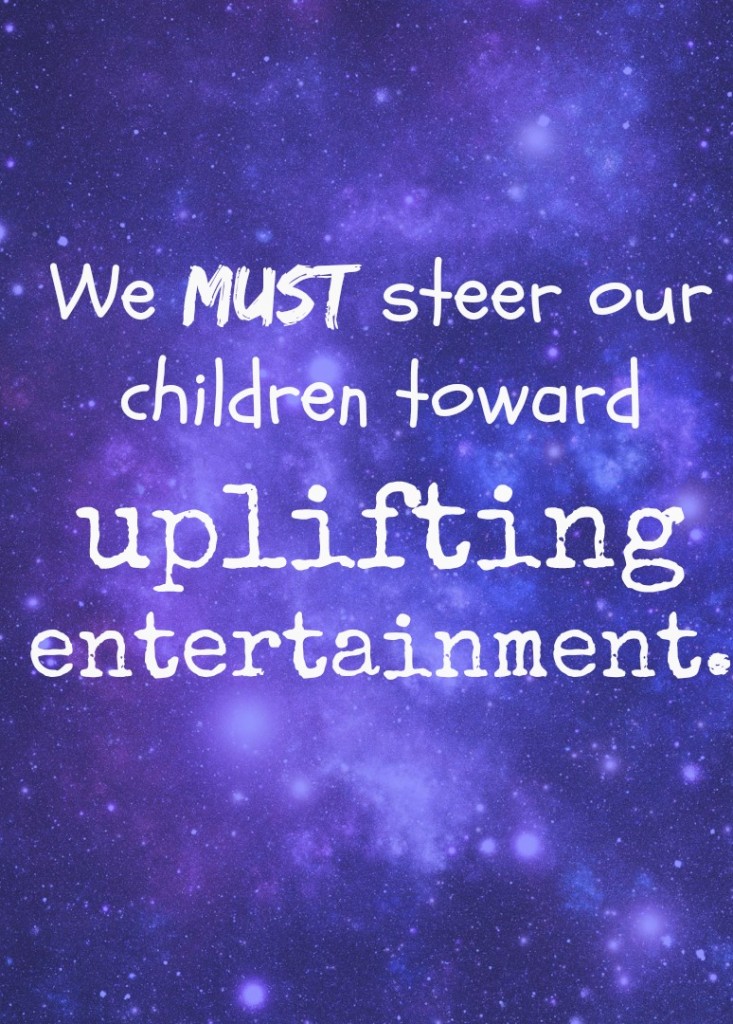I love the movies. There is no way around it. I could spend more time watching movies with my family than TV shows. I hardly ever watch TV shows, but if a great movie comes along with inspiring thoughts and wonderful music, I will watch and watch.
Just recently a full-length feature animated movie hit the theaters to mixed reviews at first. I wasn’t really excited to watch it because I thought it would be silly and not enjoyable. Boy, was I wrong and I am happy to report that this movie pleasantly surprised me. The movie Frozen has taken the world by storm and is now the 6th highest grossing movie of all time along with high sales of its sound track. Amazing that something so clean and so simple could do so much good. So why doesn’t Hollywood take note of this?
Back in March 31, 1930, the Motion Picture Association of America approved what was called, “The Production Code” for the making of movies. This code had three general principles.
1. No picture shall be produced which will lower the moral standards of those who see it.
2. Correct standards of life, subject only to the requirements of drama and entertainment, shall be presented.
3. Law–divine, natural or human–shall not be ridiculed, nor shall sympathy be created for its violation.
 What a far cry that code is to the kind of movies we have today. This type of entertainment has taken its toll on our attitudes of family life. As members of The Church of Jesus Christ of Latter day Saints, we are always encouraged to find the best of all forms of entertainment including movies.
What a far cry that code is to the kind of movies we have today. This type of entertainment has taken its toll on our attitudes of family life. As members of The Church of Jesus Christ of Latter day Saints, we are always encouraged to find the best of all forms of entertainment including movies.
So, where do we, as movie goers, draw the line in accepting what used to be “R” rated entertainment that is now PG-13? The violence which we now are desensitized to in movies is just the beginning. Watching The Hunger Games and other super hero action movies 20 years ago would have been rated much differently from the standards we used to hold so dear.
In an NBC “In Depth” news report by Mike Belcher on October 19, 1995, teenagers of different backgrounds and lifestyles were questioned about what they watched at the theater. To these adolescents, “violence was perceived as normal” and it was common to see “women in sexual situations.”
Is this what the American public sees in their everyday life? I would say not. But, through the movies being produced today, we are reinforcing our own stereotypes. We know that in our day-to-day life, most people never see the kind of violence that is shown in the films we watch at the theater. Yet these violent, sex-ridden movies are popular and are supposedly reflecting the kind of life we have in this country. This is the kind of entertainment our youth are watching. This is not reality but what other people want to characterize as good entertainment. What kind of future will we have with this reinforcement of a false reality?
Speaking to the men at church, David E. Sorrenson, LDS Church Leader said: “Brethren, today’s popular entertainment often makes what is evil and wrong look enjoyable and right. Let us remember the Lord’s counsel: ‘Woe unto them that call evil good, and good evil’” (Isaiah 5:20) (David E. Sorensen, You Can’t Pet a Rattlesnake, General Conference of The Church of Jesus Christ of Latter-day Saints, April 2001).
Up until Frozen made its debut this year for popular entertainment, the future looked pretty bleak in movie attendance. When was the last time we remember an uplifting inspirational movie being so popular? I don’t know but it doesn’t have to be that way. We can choose to watch and support family-oriented movies that are entertaining, too. As parents, it is up to us to steer our children to uplifting entertainment and if it isn’t, then turn it off.
As President Monson (the current president of the Mormons) has encouraged us: “Don’t be afraid to walk out of a movie, turn off a television set, or change a radio station if what’s being presented does not meet your Heavenly Father’s standards. In short, if you have any question about whether a particular movie, book, or other form of entertainment is appropriate, don’t see it, don’t read it, don’t participate” (Thomas S. Monson, Preparation Brings Blessings, General Conference of The Church of Jesus Christ of Latter-day Saints, April 2010).
At times we seem to swing back and forth in our praising of Hollywood from good family entertainment, like Frozen, or the Secret Life of Walter Mitty to the violence of The Dark Knight (which I refuse to watch) or Divergent. How can we praise a movie for its goodness when one of the main actors dies as a result of acting as one of the characters? Somehow we have to get the message across to those making films that families want good movies with decent moral values and no gratuitous violence or sex. We want uplifting, inspirational ideals. Let the good be portrayed as good and the evil be evil. Our future depends on it.
Valerie Steimle has been writing as a family advocate for over 25 years. As a convert to The Church of Jesus Christ of Latter-day Saints, she promotes Christian living in her writings and is the mother of nine children and grandmother to twelve. Mrs. Steimle authored six books and is a contributing writer to several online websites. To her, time is the most precious commodity we have and knows we should spend it wisely.
To read more of Valerie’s work, visit her at her website, The Blessings of Family Life.




Your post hits right at the core of my thoughts lately. I think the only remedy if for those of us who know better, to get out and produce more Decent art in whatever form we can. Write, act, sing, draw and direct more of the “good report:”stuff. Then support it though our dollars.
Thank you for your comment. It is a challenge for those who make movies to keep it interesting and clean. Maybe we will see more of that.
It’s funny that this whole article should be based on the success of *Frozen*, a movie that has been so popularly lambasted for its surreptitious championing of homosexuality and anarchy. Its message—“I was born this way, so it must be okay to act on it”—would have been fine, had Elsa remained a villain (as in both the script’s first draft and the fairy tale on which the movie was loosely based). As is, it’s certainly a situation where not all layers of meaning are positive.
I enjoyed *Frozen* for what it is: an uplifting movie in the midst of so many no-so-uplifting movies. But I still wonder what Disney was trying to say by it. Goodness knows they’ve tainted the Muppets by turning them into spokes-characters for marriage redefinition. Was *Frozen* really meant to be the same?
You bring out a good point, Jeff… Yes- I wonder too what Disney’s point was but it has supported the idea of love conquers all. I actually wrote similar pieces for my newspaper columns in the 1990’s using other uplifting movies so they are out there. Just not enough.